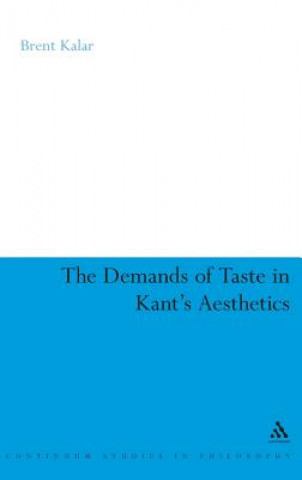
Kód: 01253367
Demands of Taste in Kant's Aesthetics
Autor Brent Kalar
Typically philosophers have either viewed beauty as objective and judgments of beauty as universally valid, or else they have viewed beauty as subjective and regarded judgments of beauty as merely private preferences. Immanuel Kan ... celý popis
- Jazyk:
 Angličtina
Angličtina - Vazba: Pevná
- Počet stran: 192
Nakladatelství: Bloomsbury Publishing, 2006
- Více informací o knize

Mohlo by se vám také líbit
Darujte tuto knihu ještě dnes
- Objednejte knihu a zvolte Zaslat jako dárek.
- Obratem obdržíte darovací poukaz na knihu, který můžete ihned předat obdarovanému.
- Knihu zašleme na adresu obdarovaného, o nic se nestaráte.
Více informací o knize Demands of Taste in Kant's Aesthetics
Nákupem získáte 755 bodů
 Anotace knihy
Anotace knihy
Typically philosophers have either viewed beauty as objective and judgments of beauty as universally valid, or else they have viewed beauty as subjective and regarded judgments of beauty as merely private preferences. Immanuel Kant is famous for his unique third path. Kant argues that beauty is subjective, but the judgment of taste about beauty is capable of universal validity. In his view, the beautiful is not a feature of objects themselves, but merely represents the way we respond to objects. Furthermore, the judgment of taste about beauty is a merely "aesthetic" judgment - i.e., one based on a feeling of pleasure we take in the object. The judgment of taste, on the other hand, possesses "universal validity": to call something beautiful is implicitly to "demand" that all others find it beautiful as well. Kant's views about the taste for the beautiful have long been the subject of controversy. Scholars have differed over the interpretation of the demand contained in a judgment of taste and whether Kant's attempt to legitimate this demand is successful. Brent Kalar argues that the demands of taste should be understood as involving a uniquely aesthetic normativity rooted in Kant's cognitive psychology. If the basis of aesthetic pleasure in the activity of the cognitive faculties is properly understood, then Kant's attempt to legitimate the demands of taste may be regarded as a success. This leads Kalar to give a new interpretation of the nature of the beautiful according to Kant that re-examines the relationship between "free play" and the "form of purposiveness" in Kant's aesthetics, and restores the "aesthetic ideas" to their rightful centrality in Kant's theory.
 Parametry knihy
Parametry knihy
Zařazení knihy Knihy v angličtině Humanities Philosophy Philosophy: aesthetics
7550 Kč
- Plný název: Demands of Taste in Kant's Aesthetics
- Autor: Brent Kalar
- Jazyk:
 Angličtina
Angličtina - Vazba: Pevná
- Počet stran: 192
- EAN: 9780826488909
- ISBN: 0826488900
- ID: 01253367
- Nakladatelství: Bloomsbury Publishing
- Hmotnost: 428 g
- Rozměry: 236 × 163 × 20 mm
- Datum vydání: 15. October 2006
Oblíbené z jiného soudku
-

In Praise of Shadows
223 Kč -

Ornament and Crime
276 Kč -

Green
948 Kč -

Shop Class as Soulcraft
405 Kč -

On Ugliness
916 Kč -

In Praise of Shadows
303 Kč -

Art of M&A Due Diligence
3694 Kč -

Art and Objects
620 Kč -

Entrepreneur's Guide to Customer Development
541 Kč -

Working Aesthetics
871 Kč -

Aesthetic Dimension
544 Kč -
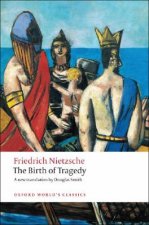
Birth of Tragedy
231 Kč -

On the Aesthetic Education of Man
284 Kč -

Divine Beauty
276 Kč -

Cultural Appropriation and the Arts
1514 Kč -
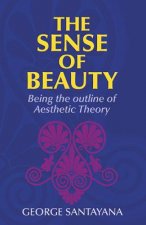
Sense of Beauty
537 Kč -
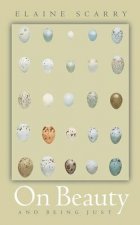
On Beauty and Being Just
490 Kč -

Nail It Then Scale It
699 Kč -

Perfect Me
707 Kč -

Heidegger's Philosophy of Art
910 Kč -

Only a Promise of Happiness
634 Kč -

Historical-critical Introduction to the Philosophy of Mythology
757 Kč -

Art of the Modern Age
835 Kč -

Saving Beauty
349 Kč -

Meaning of the Creative Act
649 Kč -

Aesthetics of Disappearance
347 Kč -

Wabi Sabi
232 Kč -

Digital Humanities and Digital Media
594 Kč -

Speculative Aesthetics
281 Kč -

Future of the Image
358 Kč -

Aesthetics of Everyday Life
1136 Kč -

On the Aesthetic Education of Man
343 Kč -

Birth of Novalis
3136 Kč -

Althusser and Art - Political and Aesthetic Theory
261 Kč -

Interpassivity
543 Kč -

Blackwell Guide to Aesthetics
1813 Kč -

Act of Reading
1082 Kč -

Aesthetics of Everyday Life
1094 Kč -

Writing Art History
1351 Kč -

Birth of Tragedy and The Case of Wagner
319 Kč -

Sacred Path of Love
426 Kč -

Anti-aesthetic
724 Kč -

Art of Videogames
2589 Kč -

Art of M&A Structuring
1735 Kč -

Aesthetics and Ethics
1315 Kč -
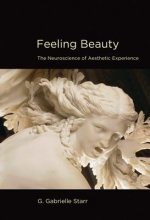
Feeling Beauty
1351 Kč -

Reclaiming Art in the Age of Artifice
341 Kč -

Modern Japanese Aesthetics
736 Kč -

History of Modern Japanese Aesthetics
892 Kč
Osobní odběr Praha, Brno a 12903 dalších
Copyright ©2008-24 nejlevnejsi-knihy.cz Všechna práva vyhrazenaSoukromíCookies




 Vrácení do měsíce
Vrácení do měsíce 571 999 099 (8-15.30h)
571 999 099 (8-15.30h)